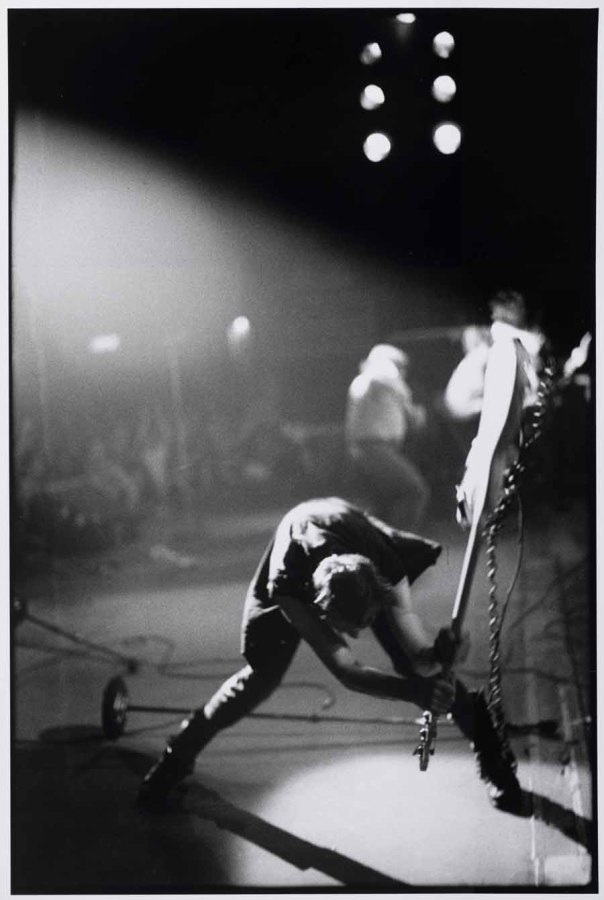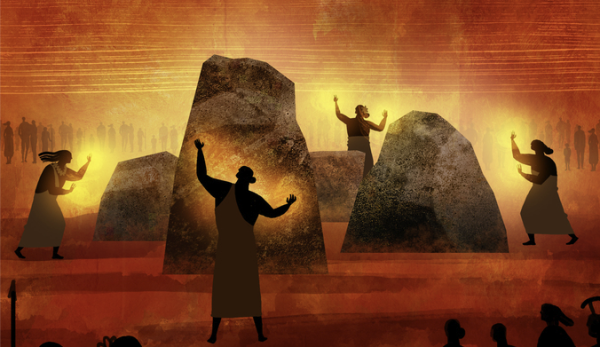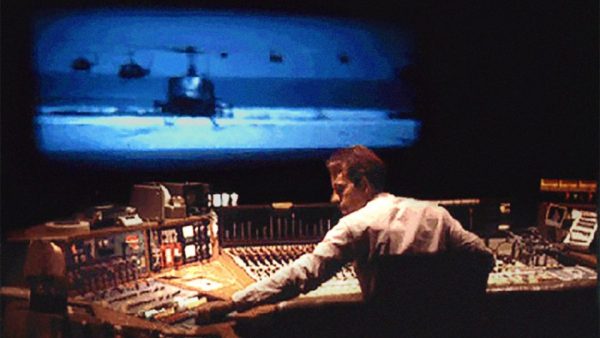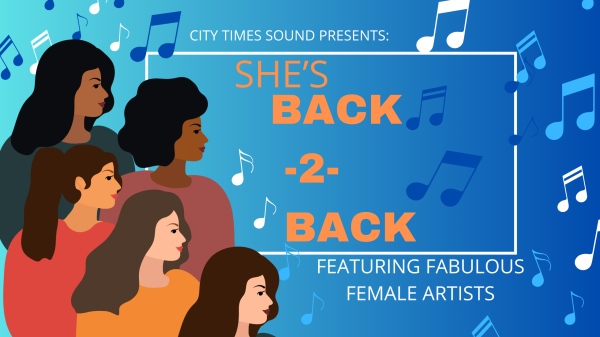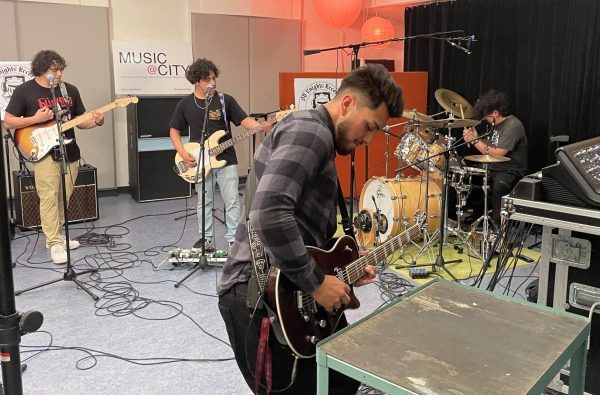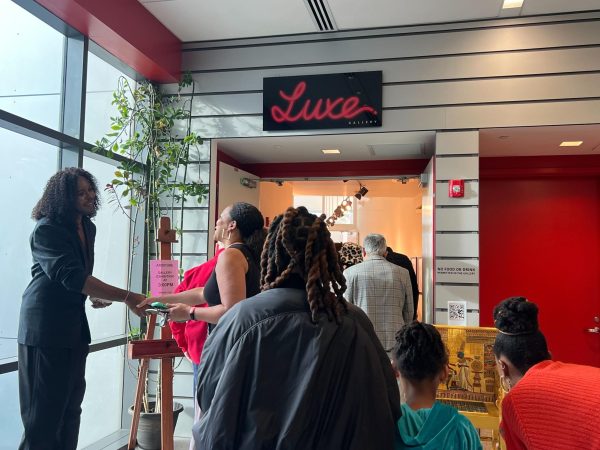SoundBreak: Going back to basics with a punk classic
The Clash bassist Paul Simonon smashing his bass during a 1979 New York City concert at The Palladium. Photo by Pennie Smith.
October 14, 2014
Music has gotten really electronic and computerized over the years. You can’t turn on a radio station or download an album without hearing songs saturated with Auto-Tune or being horribly compressed. The Clash’s 1979 classic “London Calling” is not only one of the greatest albums of all time but a perfect example of the less is more approach that is needed and missing from the current music trend.
The Clash is a very interesting band. Not only are each member punk rock legends in their own right, but every album that they released has been brilliant. (With the exception of the 1985 release “Cut the Crap.”) But it was “London Calling” that catapulted the four-piece from just another punk band from London to music royalty.
Comprised of 19 tracks, “London Calling” is a departure from The Clash’s two previous releases. Musically, “London Calling” beautifully manages to combine the rawness and brashness of London’s own brand of punk rock with reggae, ska, rockabilly and R&B; in a way that doesn’t make it sound corny or forced together.
The album cover itself is known as one of the most iconic pictures in music. Photographed by Pennie Smith and inspired by Elvis Presley’s debut album cover, it features bassist Paul Simonon smashing his bass against the stage at The Palladium during a 1979 concert.
Lead guitarist Mick Jones lead off the title song with one of the most iconic riffs in music history with Simonon layering on an exemplary bass line of his own during the fourth bar of the album opener.
Drummer Nicholas “Topper” Headon acts like a human drum machine throughout the entire album, flawlessly drifting in and out of different time signatures and varying genres at the drop of a hat. Track after track he unleashes a fierce rhythmic assault on his kit not letting up until the last second of the last song.
Lead singer and rhythm guitarist Joe Strummer’s gritty vocal style perfectly accompanies the hard hitting and relevant social issues that are addressed on the album which include war, drug use, racial tension and the pressures of adulthood.
“Clampdown,” in particular, deals with control over the masses and references the perils of Nazism and capitalism. The song cuts like a knife as Strummer belts out lyrics like “we will teach our blue-eyed men to be young believers” and “it’s the best years of your life they want to steal.” As the song plays on, Strummer calls out for revolution and sings out “kick over the wall, ‘cause governments’ to fall … Let the fury have the hour, anger can be power. Do you know that you can use it?”
Other songs on the album include a heavily ska influenced cover of The Rulers 1967 song “Wrong ‘Em Boyo,” a song based on American folklore figure Stagger Lee and based on real life criminal Lee Shelton and the murder of William “Billy” Lyons. “Spanish Bombs” deals with the Spanish Civil War and “Lost in a Supermarket” talks about consumerism in modern society.
“London Calling” is one of those special albums, it has enjoyed praise from critics and listeners alike and never feels old or dated. The combination of socially relevant lyrics and the brilliant mixing of genres will please even the most hardened electronic music lover.


